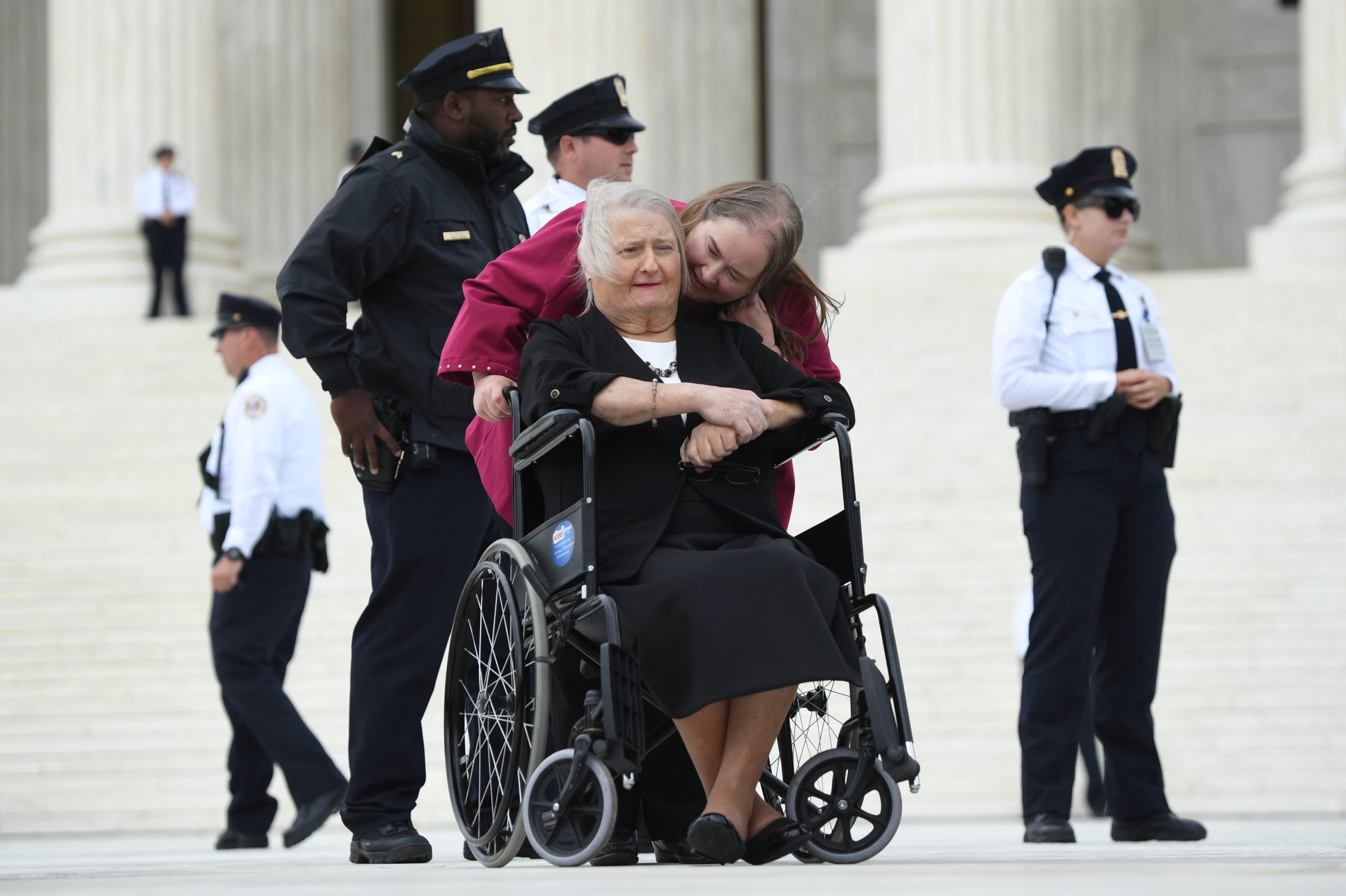Aimee Stephens with her wife, Donna, outside the US Supreme Court on October 8, 2019, before judges heard her historic case. (SAUL LOEB/AFP via Getty Images)
Aimee Stephens, the woman who brought the first-ever transgender civil rights case to the Supreme Court, has tragically died.
Stephens, 58, had kidney disease and had been receiving hospice care at home in recent weeks.
She died at home this morning, according to her brother-in-law John Pedit.
Her case was one of a trio of LGBT+ cases the Supreme Court heard on October 8, which between them could determine whether millions of LGBT+ workers are protected under the US’s most powerful federal workplace anti-discrimination law, or whether it is legal to fire people on the basis of their identity.
In Stephens’ case, the Supreme Court looked at whether trans people are protected from employment discrimination, after she was fired from her funeral-home job two weeks after coming out as trans.
The Supreme Court is due to announce its verdict any day now – making her death all the more tragic.
According to a GoFundMe that was recently set up to financially support Stephens and her wife, she had become so unwell that she was unable to travel for her thrice-weekly “lifesaving” dialysis sessions.
According to the fundraising page, Stephens had also been “struggling” with diabetes and its complications for several years now.
The page said it would help her wife, Donna, pay for end-of-life care and funeral expenses.
Legal experts have said that her death won’t render the pending Supreme Court moot, as her estate could still recover the damages for the violation of her rights.
Aimee Stephens and Harris Funeral Homes.
Aimee Stephens, 58, worked for Harris Funeral Homes in Detroit, Michigan, for six years.
In July 2013, she informed her boss, Harris Funeral Homes owner Thomas Rost, that she was trans and intended to come to work dressed in clothing worn by women in the three funeral homes he owned.
This meant coming to work wearing a skirt suit or dress.
Two weeks later, Rost handed Stephens a letter that said “this is not going to work”, Stephens told the Associated Press.
Stephens complained to the federal Equal Employment Opportunity Commission, which agreed to sue the funeral home.
A trial judge ruled against her but then a federal appeals court in Cincinnati sustained her complaint, saying that discrimination on the basis of trans status is sex discrimination.
That appeals court also separately found that she was fired because Rost had sex stereotypes about Stephens’ appearance and dress – in that, she didn’t conform to what he deemed to be female-presenting.
Rost had testified that Stephens coming to work in women’s clothes would be “a distraction that is not appropriate” for grieving families.
Rost appealed, and the Supreme Court agreed to hear the case.
